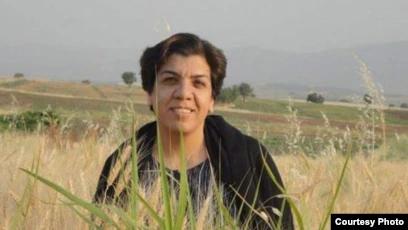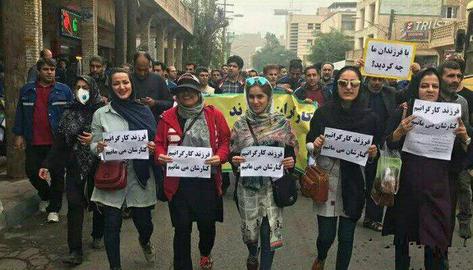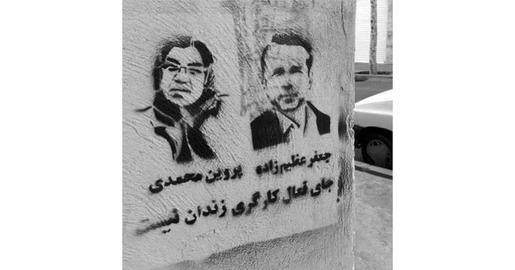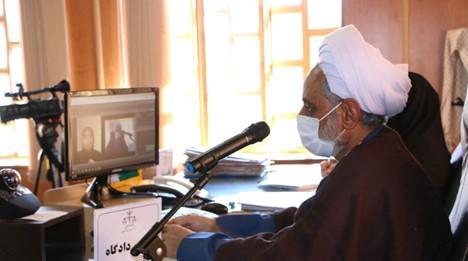Parvin Mohammadi has been vice president of the Free Union Workers of Iran for more than 20 years and was one of the main organizers of the 40,000 signatures campaign against minimum wage in Iran in 2011. She has been detained and interrogated by the Iranian authorities many times for her work.
In an interview with IranWire, this relentless defender of labor rights was asked to define the ongoing wave of women-led protests that has swept Iran for more than three months, posing one of the most serious challenges to the theocracy installed by the 1979 Islamic Revolution.
“This movement is endeavoring to remove inequality among all human beings and to end discrimination,” she said.
“After a religious government came to power in Iran, many people lost their social, economic and cultural rights. Gays faced death penalty, and women, as the ‘second sex,’ lost their basic rights. I imagine that this revolution is trying to reach a point where gender would no longer be a touchstone for discrimination and humiliation. This is why women’s demands are the society’s demands as a whole and men support them because they know that once these basic rights are institutionalized in society, members of that society will achieve their other rights as well.”
The ongoing protests were triggered by the September 16 death of a 22-year-old woman, Mahsa Amini, in the custody of Tehran’s morality police. She had been arrested for an alleged breach of the country’s strict dress code.
The protesters initially demanded more freedoms and women’s rights, before the unrest grew into calls for the downfall of Iran's clerical rulers.
“In the past protests, people didn’t so overwhelmingly chant against the regime and for its ousting. Most of their slogans were about high prices, unemployment and similar grievances,” according to Mohammadi.
“This time, the slogans didn’t remain limited to women’s demands, and people made it clear that they had greater goals that include women’s demands...the protesters immediately targeted the government. I repeat, these young people who are now in the streets will be there until victory or until they are wiped out.”
When asked about where the Iranian labor movement stands in the protest movement, Mohammadi says, “Many of those who have been killed in recent protests are workers and children of workers. But if you mean labor strikes and their support for this movement, I must say that the workers have yet to enter the field in an organized way, and there’s a reason for this.”
The union leader explained that, after the 1979 revolution, the Islamic Republic stripped the workers of the ability to form independent trade unions and guilds.
“On top of that, the Islamic Republic established parallel institutions such as the Workers’ House and the Islamic Workers Councils above the heads of the workers and limited any kind of association among workers. And they do not allow us to recruit members and be active the way we should be.”
“But nationwide labor strikes are coming,” Mohammadi predicted, adding, “They will come when the workers can feel confident that if they raise a placard with the logo of their workplace and join the movement, the employer wouldn’t add his own punishment to the government’s punishment.”
The Iranian security forces have cracked down hard on the protests, killing more than 500 people and detaining over 18,000, human rights activists say.
At least 100 protesters are currently at risk of “execution, death penalty charges or sentences,” according to one rights group.
visit the accountability section
In this section of Iran Wire, you can contact the officials and launch your campaign for various problems



























comments